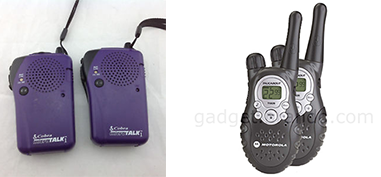My understanding of why movie characters say "break" and "over" during radio conversations is based on this answer, which says that people using half-duplex devices often will want to let others on the channel interrupt them with something more urgent rather than hogging the channel with a long transmission.
But why say "break" or "over" rather than have the devices chirp at the end of each transmission?
My only experience with walkie talkies has been with toys like Cobra and Motorola, which chirped whenever a user let go of the transmission button.
Does the protocol of saying "break" only exist wherever devices don't support chirping?
I looked at https://ham.stackexchange.com/help/on-topic to see whether this question belongs on this site or elsewhere and couldn't tell.
